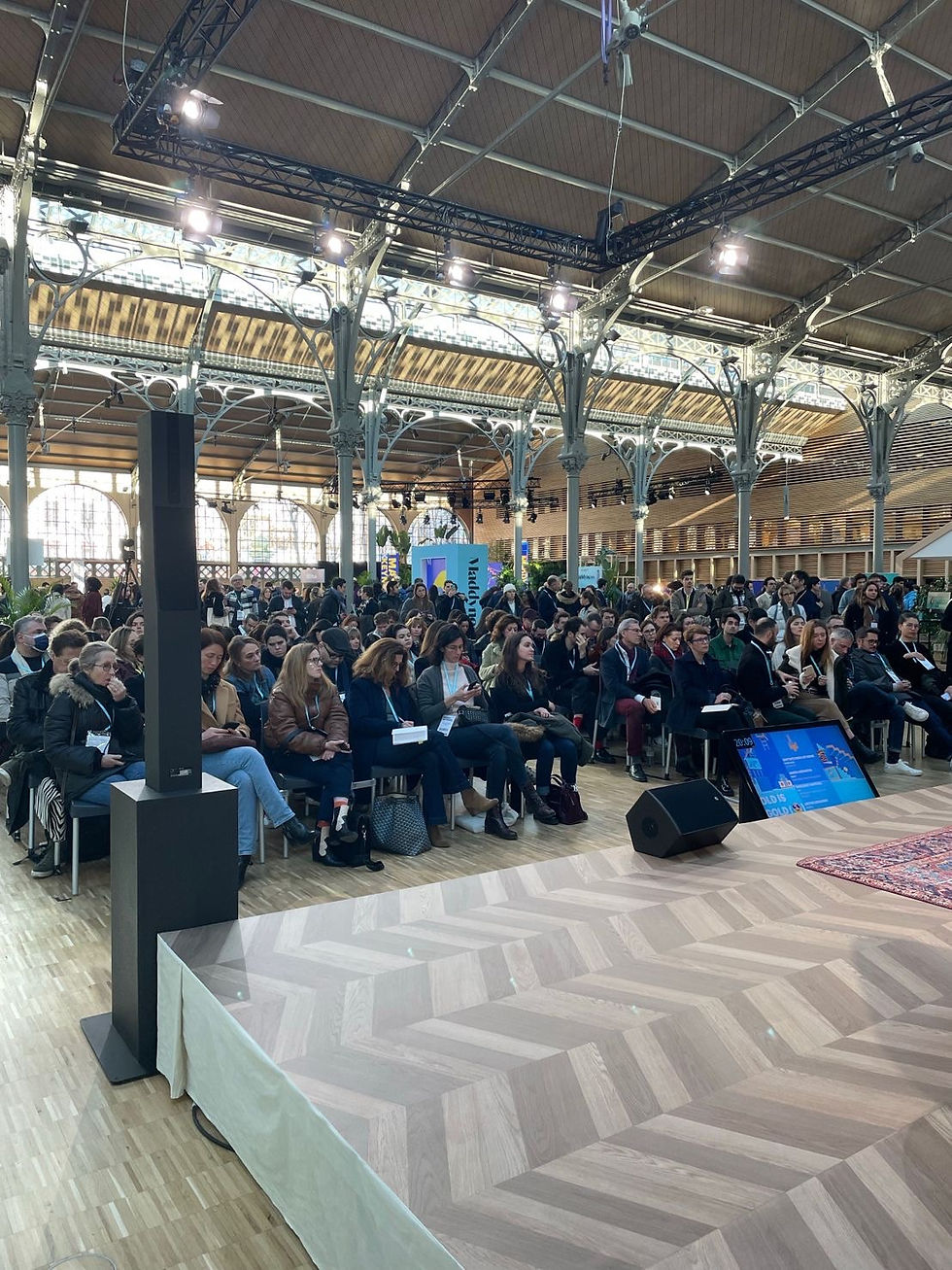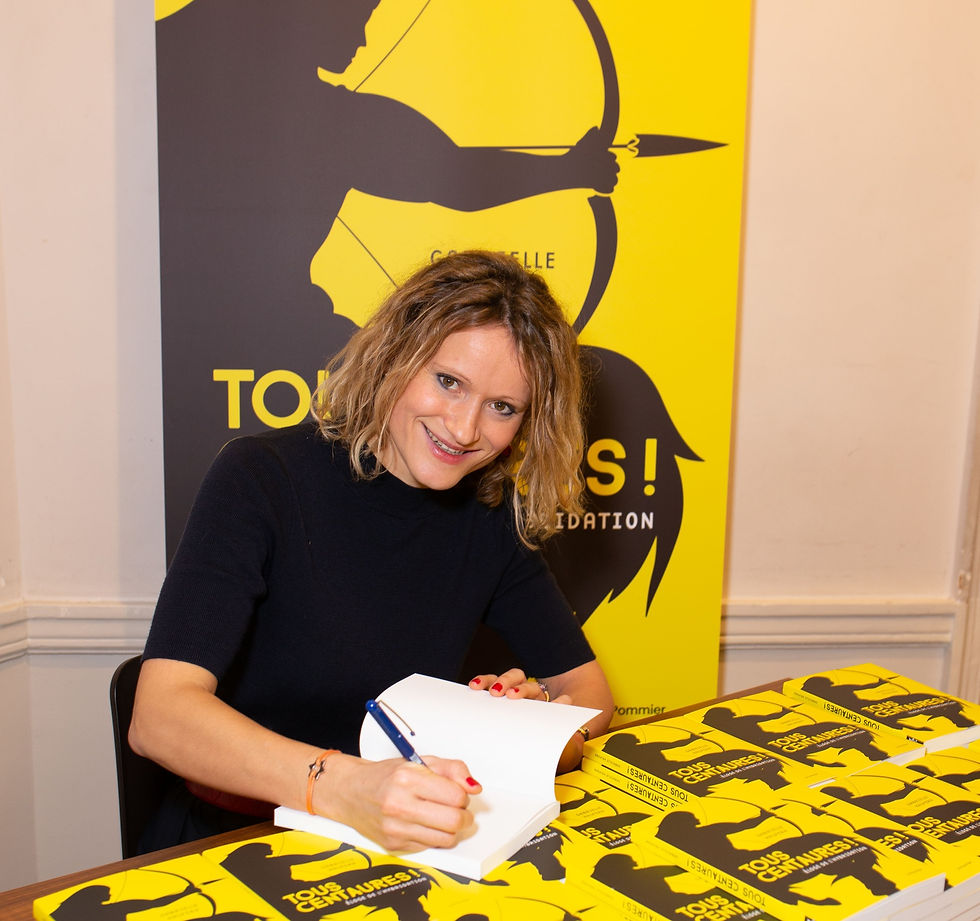"Ecological innovation implies a philosophical revolution!", Gabrielle Halpern - Maddyness
- gabriellehalpern
- Feb 18, 2023
- 2 min read

The philosopher Gabrielle Halpern was invited to speak on the occasion of the 2023 edition of the Maddy Keynote, organized by Maddyness. In front of several hundred participants, she debated with players from the business world, sharing her vision of ecological innovation, the conditions for its emergence and its evaluation.

@Crédits Photo Maddyness
"The ecological question is first of all a philosophical question. What relationship are we ready to form with nature? What role do humans want to play among other animals, plants and natural resources?", Gabrielle Halpern
"The ecological crisis confronts us with our flaws, with our inability to bring all the stakeholders around the table, with our difficulty in getting out of the silos and the particular interests of each. However, to respond to the ecological crisis, the climate emergency, the scarcity of resources, we will have to learn how to make artists and engineers, researchers and public decision-makers, large groups and start-ups work together, associations and investment funds! We are going to have to learn to hybridize, that is to say to achieve "improbable marriages", by bringing around the table actors who do not have the same temporality, nor the same culture, nor the same logic, neither the same imagination, nor the same professional identity, nor the same interest", Gabrielle Halpern

@Crédits Photo Maddyness
« To create a strong ecological innovation ecosystem within companies, everyone will have to question themselves: the legal director will have to radically rethink the way he builds contracts and partnerships with all the links in the value chain, the director manager will have to learn to become an extra-financial director, he will also have to learn to hybridize with the CSR department! We will also have to rethink the criteria for evaluating an innovation and this can have huge consequences in terms of defining the value (including financial!) of an innovation... », Gabrielle Halpern
« In terms of ecological innovation, and more generally in terms of innovation, it is important to remember that innovating for the sake of innovation is absurd! An innovation makes sense, an innovation is useful, if it makes sense and if it is useful for future generations. We must stop acting, deciding, thinking in terms of the past; the past cannot be the criterion for evaluating the present or the future! We have made “coherence” a real moral value and we dare not act, transform our models, our professions, in the name of the sacrosanct value that would be coherence. We should always do everything in line with what we have done previously... However, the ecological crisis confronts us with an obvious fact: it is no longer to the past that we must be faithful, but it is to the future that we must learn to be faithful! It is no longer the past that must justify our future actions, it is the future that must justify our present actions and decisions. It is the future that will give meaning to who we are today and what we do today. Let's be faithful to the future! », Gabrielle Halpern

@Crédits Photo Maddyness


